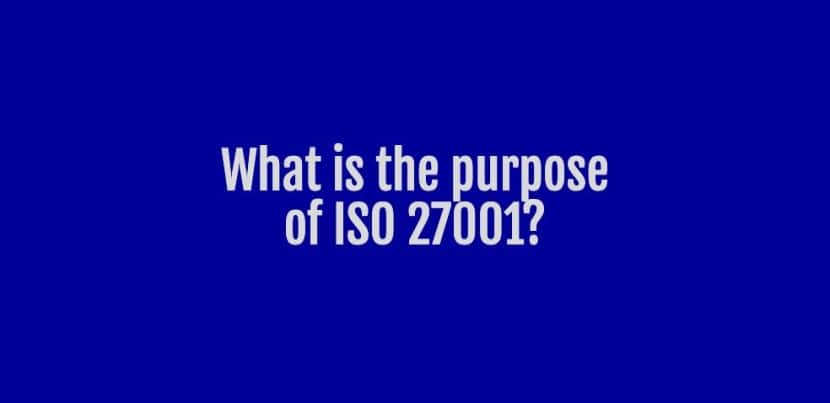The purpose of ISO 27001 is to provide a systematic approach to managing sensitive information within an organization. It is the international standard for information security management systems (ISMS) and aims to ensure the confidentiality, integrity, and availability of information assets. ISO 27001 helps organizations establish, implement, maintain, and continuously improve their information security management systems, ultimately reducing the risk of potential security breaches, data leaks, and financial losses. It also promotes customer trust and confidence by demonstrating a commitment to safeguarding information.
How does ISO 27001 help organizations manage information security risks?
ISO 27001 is an internationally recognized standard that outlines the best practices for establishing, implementing, maintaining, and continually improving an Information Security Management System (ISMS). It helps organizations manage information security risks by providing a systematic approach to identifying, analyzing, evaluating, and treating those risks in a structured and consistent manner. Here’s how ISO 27001 helps:
1. Risk assessment: ISO 27001 requires organizations to conduct a comprehensive risk assessment to identify and evaluate potential threats, vulnerabilities, and the impact of potential security incidents. This process helps organizations understand their information security risks and prioritize them based on their potential impact on the business.
2. Risk treatment: Once the risks are identified, organizations need to develop and implement appropriate risk treatment plans, which may include implementing security controls, adopting safeguards, or transferring the risk to a third party. ISO 27001 provides a framework for selecting and implementing these risk treatment options based on the organization’s risk appetite and business objectives.
3. Continual improvement: ISO 27001 emphasizes the importance of continual improvement by regularly reviewing and updating the ISMS to address emerging risks and changing business needs. This ensures that information security measures remain effective over time and adapt to new threats and vulnerabilities.
4. Legal and regulatory compliance: ISO 27001 helps organizations establish a framework to identify and comply with applicable legal, regulatory, and contractual requirements related to information security. By implementing ISO 27001, organizations can demonstrate their commitment to protecting sensitive information and complying with relevant laws and regulations.
5. Stakeholder confidence: Adhering to ISO 27001 demonstrates to customers, partners, and other stakeholders that an organization has implemented internationally recognized best practices for managing information security risks. This can enhance stakeholder confidence and trust in the organization and give it a competitive advantage.
6. Incident response and management: ISO 27001 requires organizations to establish incident response procedures and mechanisms to handle security incidents promptly and effectively. This helps minimize the impact of security breaches and ensures a structured approach to incident response, including communication, containment, recovery, and lessons learned.
Overall, ISO 27001 provides a holistic approach to managing information security risks, enabling organizations to establish a robust ISMS tailored to their specific needs and reducing the likelihood and impact of security incidents.









